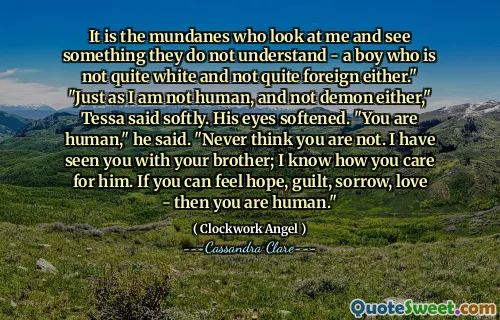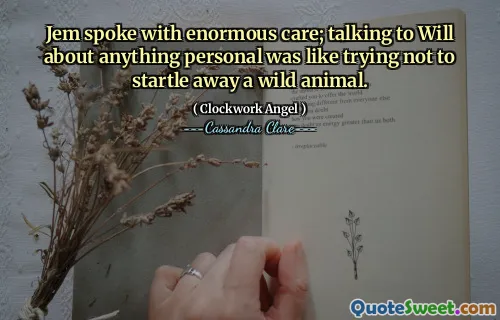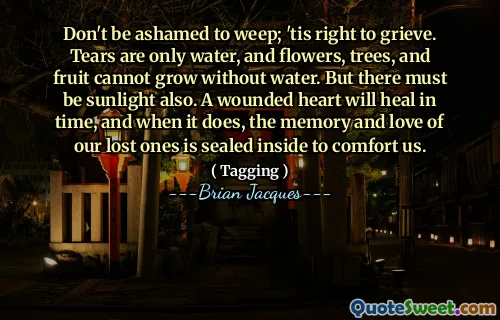
It is the mundanes who look at me and see something they do not understand - a boy who is not quite white and not quite foreign either." "Just as I am not human, and not demon either," Tessa said softly. His eyes softened. "You are human," he said. "Never think you are not. I have seen you with your brother; I know how you care for him. If you can feel hope, guilt, sorrow, love - then you are human."
This excerpt explores profound themes of identity, belonging, and the essence of what it truly means to be human. The characters confront societal perceptions and personal internal beliefs that challenge superficial labels and racial or supernatural classifications. Tessa's acknowledgment that she is perceived differently by those around her highlights the often arbitrary and superficial distinctions society creates—based on appearance, race, or heritage—that do not define a person's true nature. The response from the other character reinforces a timeless truth: that the capacity to experience complex emotions such as hope, guilt, sorrow, and love is the hallmark of humanity. This serves as a powerful reminder that external labels and societal expectations are fallible, and genuine human identity resides within one's emotional depth and moral compass. It also resonates with the idea that understanding and compassion require seeing beyond superficial differences to recognize the universal human experience. The dialogue provokes reflection on how society often categorizes individuals based on appearances or heritage that do not capture their inner selves. The affirmation that feeling emotionally charged states affirms one's humanity encourages readers to embrace their vulnerabilities as strengths rather than flaws. Ultimately, the quote champions empathy and self-acceptance, emphasizing that to be human is to feel deeply—and that these feelings are what truly unify us across differences.




